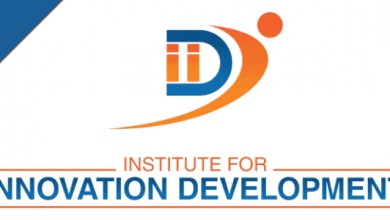5 Questions to Ask Yourself 5 Years Before Retirement

To make Wealthtender free for readers, we earn money from advertisers, including financial professionals and firms that pay to be featured. This creates a conflict of interest when we favor their promotion over others. Read our editorial policy and terms of service to learn more. Wealthtender is not a client of these financial services providers.
➡️ Find a Local Advisor | 🎯 Find a Specialist Advisor

Is retirement on the horizon for you in the next five to ten years? For blended families, this chapter isn’t just about your personal transition—it’s about making sure the financial planning you’ve been building reflects the needs and priorities of your entire family. It’s a goal you’ve spent a lifetime working towards, and now is the ideal time to fine-tune your strategy, ensuring your family’s transition is as smooth as possible.
As you approach your retirement, it’s important to be intentional with your planning. Blended families often bring unique financial dynamics, such as managing shared expenses, supporting children from previous marriages, and navigating evolving co-parenting arrangements. Thoughtful, well-structured planning can help prevent missteps that might delay your retirement or strain family relationships.
Consider these five key questions to guide you—and your blended family—in the five years leading up to your retirement.
1. How will I spend my time during retirement?
Proper financial planning isn’t just about money—it’s about envisioning how you want to spend your time in retirement. Money is simply the tool that helps you maximize and enjoy that time to the fullest. Think of retirement as a chance to build the life you want. Have you considered what you’re retiring to rather than just what you’re retiring from? Successful retirees focus on how they’ll spend their time nurturing what matters most, like learning, community, giving back, and personal achievements. These desires don’t fade in retirement—in fact, they often grow even stronger.
Whether you love your job or can’t wait to call it quits, you should be aware that many retirees admit to missing some of the excitement, camaraderie, routine, and sense of purpose they achieve from their careers. Sitting around with nothing to do and nowhere to go might sound appealing now, but it gets old fast, and it also ages you faster. How you spend your time matters to your physical, mental, emotional, and spiritual well-being. It’s crucial to think ahead about how you’ll stay active, engaged, and fulfilled.
For blended families, your time may also include balancing relationships with extended family members. You might spend more time traveling to visit children, stepchildren, or grandchildren, or hosting family gatherings. Beyond family, consider what brings you joy—whether it’s volunteering, learning something new, or rediscovering old hobbies. Keeping your mind and body active is key, but there’s no one-size-fits-all answer. The important thing is to plan how you’ll make the most of this new phase of life.
2. Are my retirement savings and financial situation on track?
Retirement planning isn’t a one-and-done task, especially for blended families. The financial landscape often changes with life events like marriage, divorce, remarriage, and shifts in family dynamics. In recent years, you may have welcomed new stepchildren, navigated the financial needs of kids from different households, or adjusted your retirement goals to include support for both biological and stepchildren. With kids out of college or possibly still financially dependent, it’s essential to reevaluate how your evolving family structure affects your retirement timeline.
In addition to personal changes, global economic shifts—like inflation or market fluctuations—can also impact your plans. As you approach retirement, it’s crucial to reassess your financial situation and savings strategy, considering any adjustments needed for your blended family’s needs. You might find it necessary to bolster your savings by working a little longer or modifying your lifestyle. On the other hand, your careful planning might reveal that you’re in a position to retire earlier than expected. Either way, taking stock of your finances now helps ensure you can enter retirement confidently, with your family’s unique needs in mind.
3. How can I align my spending habits with my retirement budget?
When you’re young and thinking far into the future, it’s easy to picture retirement as a time to slow down and assume cutting back on spending will come naturally. But as retirement gets closer, you might find that your interests, lifestyle, and family connections—especially within a blended family—are more active than ever. Retirement doesn’t mean you’ll suddenly spend less time on the things that make life fulfilling. Whether it’s traveling to see grandchildren from both sides of the family, continuing traditions with stepchildren and biological kids, or even making room for family gatherings at home, your retirement budget may need to reflect a unique set of priorities.
Blended families often bring a larger, more interconnected family dynamic, which means planning for these relationships in your retirement budget is especially helpful. You may have more grandchildren to visit, more places to travel to, or even extra space needed to accommodate visiting family members. If spending time with family is a top priority, planning early allows you to maximize these moments and avoid making big sacrifices.
With our Planning Built for Life® model, we believe that planning for retirement should be about maximizing your life both now and in retirement. Thoughtful planning can help you work towards your goals without limiting what’s meaningful to you. With consistent preparation, you can avoid significant cutbacks and create a retirement lifestyle that enhances, rather than reduces, your quality of life. And remember, it’s never too late to start planning. Sometimes, it just means making a few adjustments to turn your ideal retirement into reality—there are always options to make it happen.
4. What are my healthcare options in retirement, including Medicare and supplemental insurance?
Healthcare is one of the biggest financial considerations for anyone approaching retirement, and the complexity can be even greater for blended families. Beyond managing your own health needs, you might be responsible for a spouse, stepchildren, or other family members. With the rising cost of healthcare, even those who have built up substantial savings may need to prepare for unexpected medical expenses.
While healthcare costs can be daunting, they don’t have to derail your retirement plans. The key is planning and fully understanding your options, particularly Medicare and supplemental insurance. As you navigate these decisions, it’s important also to consider any family members who may rely on you for coverage or support.
Start by reviewing your employer-sponsored benefits and any current insurance policies, and assess what will change after retirement. Understand the costs associated with Medicare and the benefits and gaps that may require supplemental insurance. If you’re not yet eligible for Medicare, part-time employment could help bridge the gap by providing access to affordable health insurance until coverage kicks in. The more informed you are about your healthcare choices, the better equipped you’ll be to protect your financial future and ensure your blended family’s well-being.
5. How will I transition out of my current career? Should I consider working part-time during retirement?
Retirement isn’t always a hard stop—it can be a gradual process, and in blended families, that flexibility can be especially valuable. You may find yourself balancing responsibilities with children, stepchildren, or even grandchildren, while still wanting to stay engaged professionally. Part-time work, consulting, or project-based roles can offer a fulfilling middle-ground.
Whether you’re an executive considering stepping down from board positions, a professional scaling back billable hours, or an entrepreneur phasing out your business, working part-time or taking on lighter responsibilities can help maintain a sense of purpose and financial stability. It can also give you time to navigate family dynamics, like spending more time with kids or traveling between households.
For some, the decision to transition earlier than planned might come after an unexpected event, like a layoff or market shifts. In these cases, part-time work can offer flexibility while still giving you the space to enjoy your retirement. Whether you choose to ease into retirement or embrace it fully, consider how your work-life balance will impact your family and long-term goals.
You Deserve Answers
With retirement on the horizon, it’s time for purposeful planning. Take inventory of your current financial situation, adjust spending, explore healthcare options, envision post-career pursuits, and plan a gradual career transition. Want help developing a personalized strategy for a smooth and confident transition into retirement? At Endurance Financial Group, we’re ready to help you navigate the path ahead. Reach out to us today to schedule a complimentary consultation.
This article was originally published here and is republished on Wealthtender with permission.




